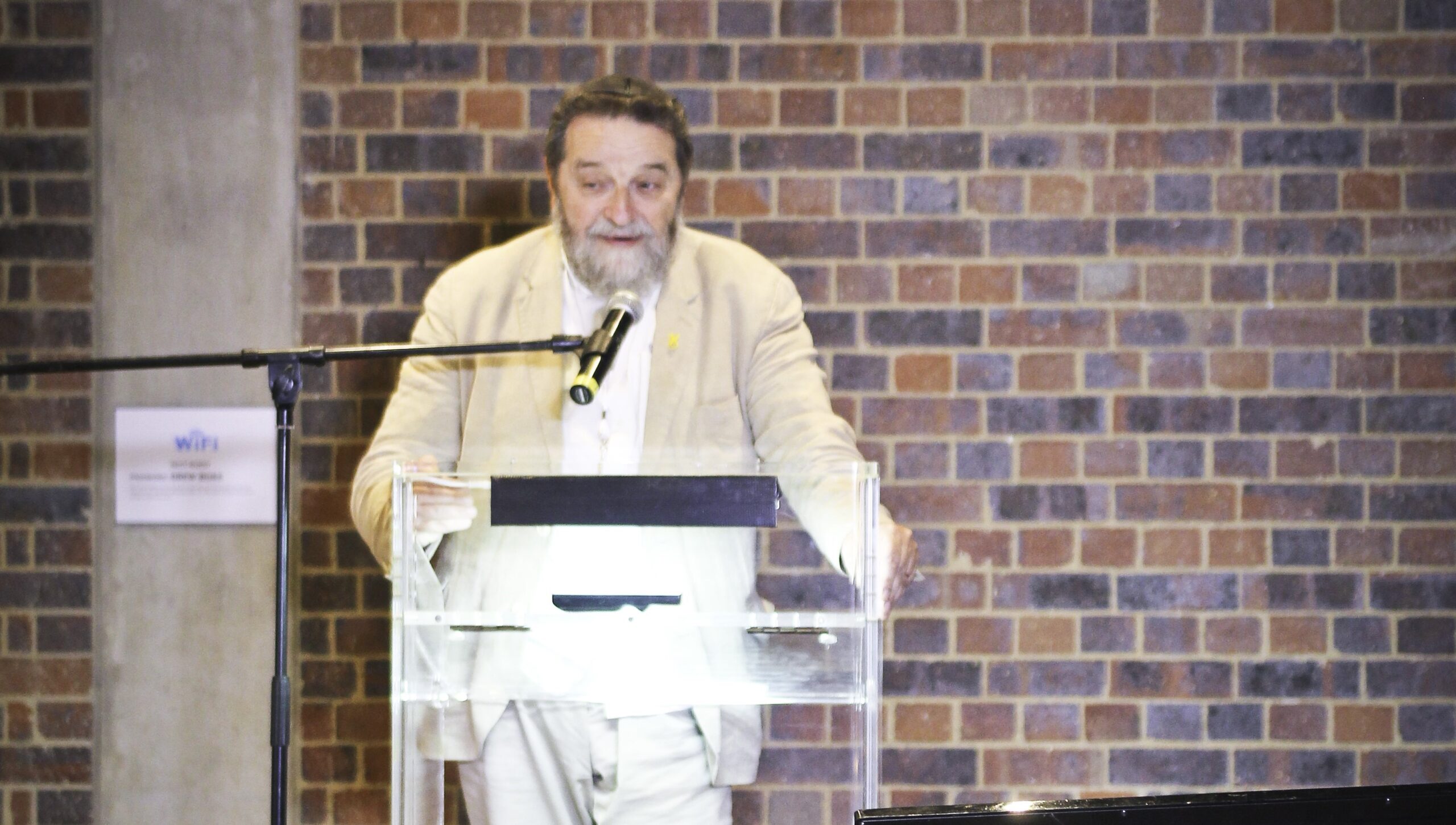
Holocaust

Polish struggle with Jewish genocide has global relevance
From misuse of the word “genocide” to Poland’s relevance to Jews today, Polish-Jewish journalist, educator, author, activist, and former war correspondent Konstanty Gebert has a unique perspective on history’s enduring impact. Recently in South Africa to speak at two Holocaust-related conferences, Gebert shared his insights with the SA Jewish Report.
“Genocide gets recognition,” he said. “The downside is that nothing but genocide gets recognition.” Among his many books is Final Solutions: Genocide Perpetrators and their Work, which was released in February 2022, days before Russia invaded Ukraine, inadvertently boosting sales. In 2023, Gebert published a book on the history of Israel. “Again, I didn’t expect much success, but Hamas took care of the marketing. I’m scared of writing a new book!”
Speaking of misappropriation of the word “genocide”, Gebert said it has become a means of gaining political capital. “Any oppressed group would claim to be the victim of genocide, not because they’d like to be exterminated in war but because if the allegation sticks, it gets them the recognition that any oppressed group deserves.”
While suffering isn’t quantifiable, we’re thereby creating a world in which nothing is considered as bad as genocide, he said, desensitising us to other horrors faced in war zones. There’s also confusion about what constitutes genocide, with more than 50 academic definitions.
Yet in international law, there’s only one definition, coined by Polish-Jewish lawyer and Holocaust survivor Raphael Lemkin. “It says that these are actions committed with the intent of exterminating in part or in whole, an ethnic, national, racial, or religious group,” Gebert said. “So, in genocide, the intent is crucial. It’s not about the number of victims. It’s not a moral judgement on the victims, it’s a statement of fact.”
Though he argues that there are crimes on both sides of the war in Gaza, Gebert believes there’s no basis to claim genocidal intent.
“It’s pretty obvious why this particular war, with its concomitant horrors, has launched allegations of genocide,” he said. “It’s not about the victims, it’s about the alleged perpetrators. It’s obvious that nothing would hurt Jews more than being put in the same category as the Nazis. Whether you stand with or against Israel has become the issue here, and that’s nonsense. The issue is whether you stand with the meaning of words. If people don’t take a stand against unfounded allegations of genocide, it devalues the term.”
Gebert’s entire career has been underpinned by his understanding of the power of words. In the 1980s with Poland under communist military rule, he became an underground journalist, publishing Kos, which stood for the Committee for Social Resistance. Kos became the second largest print-run underground publication in Poland.
“These were the last years of communism, even though we didn’t know that yet,” he said. “We were one of the more important voices in the public debate, breaking the ruling party’s monopoly on information.”
A passionate activist, Gebert has also been instrumental in confronting Poland’s troubled past. “Since history happened, it can happen again,” he said. “If we don’t study it, we won’t be able to identify the forerunners.”
The fall of communism helped open the debate about what happened between Poles and Jews during World War II, and Gebert became a public voice here. “Part of the problem was the antisemitic teachings of the Catholic church,” he said.
In helping to create a new narrative, Gebert played a key role in the formation of the Polish Council of Christians and Jews. The council applies religious moral reflection to current issues, looking at them from both a Jewish and Christian perspective. “It normalised the idea that Christians and Jews can talk and even work together,” he said.
Yet the difficulty about discussing World War II is that Polish citizens consider themselves the victims, Gebert said. “Legitimately so, considering that Poland lost six million citizens during the war, three million of them Polish Jews, and three million non-Jewish Poles. Yet, victims often find it difficult to accept that they might also have been perpetrators.”
With the publication of Neighbors: The Destruction of the Jewish Community in Jedwabne, Poland written by historian Jan T. Gross in 2000, the debate developed a surprisingly honest edge. The book explores the 1941 massacre committed against Polish Jews by their non-Jewish neighbours in the village of Jedwabne in Nazi-occupied Poland. Yet, while it got people talking, without associated action, the debate faded away.
“Today you’ve got a segment of public opinion that says that this is anti-Polish slander, but there’s a substantial segment of Polish civil society that says it happened, and needs to be studied and remembered,” Gebert said. These local activists work to preserve Poland’s Jewish legacy.
“The conflict between the two subsections of Polish civil society is really not about the Jews, it’s about the kind of Poland we want to have,” Gebert said. “Because if you’re antisemitic, chances are that you’re also homophobic, anti-democratic, anti-European, and so on. If you’re against antisemitism, chances are you’re the opposite of all those things.”
Today, there are only 7 800 Jews in Poland affiliated to Jewish organisations, an approximately further 15 000 who identify as Jewish but remain unaffiliated, and thousands more who don’t acknowledge or may be unaware of their Jewish roots. “In practical terms, Jews don’t matter in Poland,” Gebert said. “In a nation of 38 million, there is no election where we’d play any role. Yet as a litmus test, we remain important.”
While Gebert stays in Poland to be close to the people he loves, there’s more to it than that. “I had people go to jail because they printed what I wrote, and that gives me incentive to stay and make sure that something like that never happens again,” he said.
“There’s a Jewish interest in having Jews live in Poland. Poland is, at least for Ashkenazi Jews, so much a part of our collective identity that we cannot afford not to understand it. And, with such complicated Polish-Jewish relations, understanding from outside isn’t recommended.”










